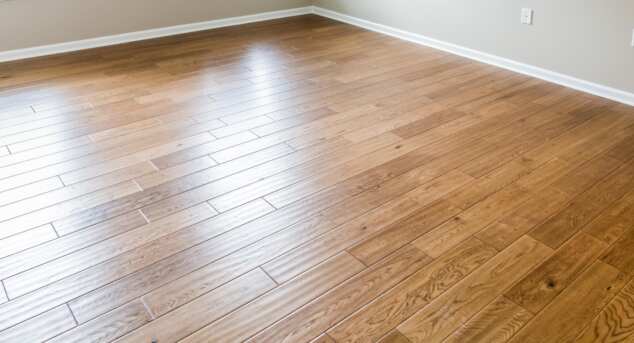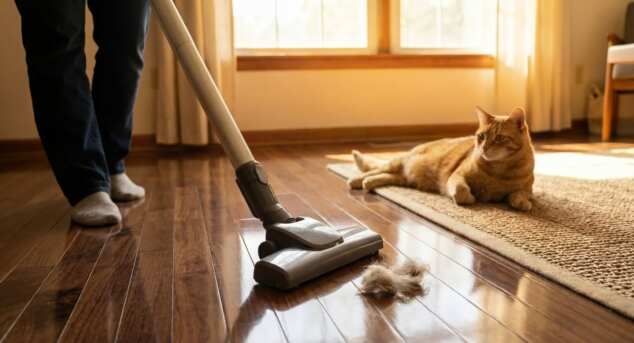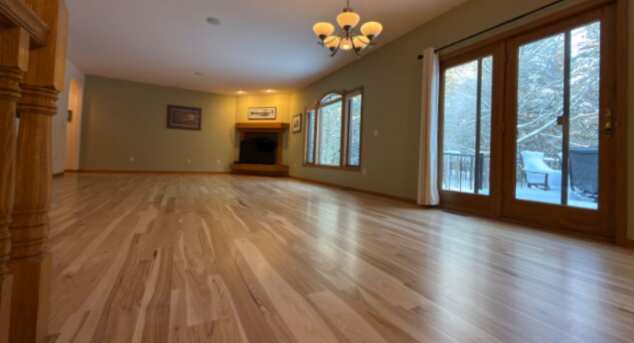Ultimate Guide to Cleaning Pet Urine from Hardwood Floors: Safe Solutions
Posted by Aaron Schaalma
Having pets brings joy, but it can also lead to challenging messes, especially when it comes to hardwood floors. The sight of an unfortunate accident can turn a beautiful space into a source of stress. Understanding how to effectively manage pet urine on hardwood is essential for maintaining the integrity of your floors.
Pet urine can wreak havoc on wood surfaces if not addressed properly, leading to unsightly stains and lingering odors. Immediate action is critical, but knowing what to do next can make all the difference. From natural solutions to enzyme cleaners, there are various methods to tackle both fresh and established stains.
In this article, we’ll explore the impact of pet urine on hardwood floors, provide step-by-step guides for quick response cleaning, recommend effective products, and share maintenance tips. With the right tools and knowledge, you can keep your floors looking pristine while enjoying your furry companions.
The Impact of Pet Urine on Hardwood Floors
Pet urine accidents are an inevitable part of life with furry friends. Unfortunately, they can have a significant impact on hardwood floors. Urine stains and odors can seep into the wood, causing discoloration and damage that becomes more challenging to remove over time. Regular cleaning and quick responses to pet messes are essential to preserving your floor’s natural beauty.
Understanding the Composition of Pet Urine
Pet urine is composed of various elements like water, urea, uric acid, and ammonia. These components can react with the finish on hardwood floors, creating unsightly stains and odors. Over time, the uric acid and ammonia can penetrate deeper, leading to long-lasting damage. Understanding this composition helps in selecting effective cleaners that specifically target these elements.
Immediate vs. Long-Term Effects on Wood
Immediately after an accident, pet urine can cause moisture to seep into the wood, potentially leading to warping if left unattended. It also poses a risk of rapid discoloration due to its acidic nature. In the long term, untreated urine can result in permanent stains and lingering odors embedded deep within the wood grain. Acting quickly with the right pet stain removers is crucial to prevent these lasting effects on your hardwood floors.
Quick Response: How to Address Fresh Urine Stains
Dealing with pet messes promptly can save you a lot of trouble later. The faster you act on fresh urine stains, the easier they are to remove from your hardwood floors. Start by gently blotting the area with paper towels to soak up as much moisture as possible. Avoid rubbing, as this can spread the urine and push it deeper into the floor.
Step-by-Step Guide for Treating Fresh Stains
Blot the Area: Use paper towels or a soft cloth to absorb the fresh urine. Press lightly to avoid spreading the stain.
Rinse with Water: Lightly spray the area with water and blot again. This helps dilute any remaining urine.
Apply a Cleaner: Choose a hardwood floor cleaner specifically designed for pet urine. Follow the instructions, ensuring it’s safe for your floor type.
Dry the Floor: Use a dry towel to remove any remaining moisture. Make sure the floor is completely dry to prevent damage.
Natural Solutions: Hydrogen Peroxide, Baking Soda, and Vinegar
Natural solutions can be effective for dealing with pet stains on hardwood floors.
Hydrogen Peroxide: Mix one part hydrogen peroxide with three parts water. Test on a small area first to ensure it doesn't discolor your floor. Apply to the stain, let it sit for a few minutes, then blot dry.
Baking Soda and Vinegar: Sprinkle baking soda on the stain, then spritz with vinegar. Let it fizz and sit for about five minutes before wiping it with a damp cloth. This combination neutralizes odors and lifts stains.
Vinegar Solution: Mix equal parts vinegar and water in a spray bottle. Apply to the stained area, let it sit for a few minutes, then blot with a cloth.
Dealing with Established Stains
Established stains on hardwood floors from pet urine can be stubborn. It's essential to address these quickly to prevent long-term damage. Start by gently cleaning the area with a damp cloth to remove any surface residue.
The Role of Enzyme Cleaners
Enzyme cleaners play a crucial role in breaking down the proteins found in pet urine. They effectively neutralize odors and lift even the most entrenched stains without damaging the wood. Ensure to choose a product specifically safe for hardwood floors and follow the application instructions carefully.
Maintenance Tips for Hardwood Floors with Pets
Having pets doesn’t mean you have to compromise the beauty of your hardwood floors. With the right care, you can keep your floors looking as good as new. Frequent cleaning and addressing pet messes immediately will help maintain the charm and longevity of your hardwood surfaces. Using the right products designed for pet urine and pet stains is essential.
Importance of Regular Cleaning Routines
Cleaning your hardwood floors regularly can significantly minimize the impact of pet stains and odors. Start by vacuuming or sweeping to remove any loose dirt and pet hair. Follow up by using a hardwood floor cleaner specifically formulated for pet messes. This routine will help prevent stains from setting and reduce persistent pet odors.
The Significance of Proper Sealing
Proper sealing is crucial for protecting your floors from moisture and urine stains. Well-sealed floors are less likely to absorb pet urine, making cleanup easier and lessening the chances of damage. For top-notch protection, consider having Signature Custom Floor come out for a professional buff and coat service. This will renew the seal, offering enhanced defense against pet stains and prolonging the life of your floors.
Preventative Measures
Preventing pet messes on hardwood floors starts with simple steps. Regularly take your pet outside and establish a consistent feeding schedule to minimize unexpected accidents. Place mats under food and water bowls to catch spills that can otherwise seep into the wood.
Training Pets to Reduce Accidents
Training your pet is crucial in reducing the risk of accidents on hardwood floors. Establish a clear routine for bathroom breaks, praise them for going outside, and consider crate training if needed. Patience is key; positive reinforcement can make all the difference in house-training success.
Using Pet-Friendly Cleaning Supplies
When accidents happen, using the right supplies makes all the difference. Opt for cleaners specifically designed for pet stains and odors. These products are gentle on hardwood floors but tough on pet messes. Look for enzymatic cleaners that break down urine stains and neutralize pet odors without harsh chemicals.
Conclusion
Keeping your hardwood floors beautiful while living with pets is entirely possible with the right approach. By acting quickly, using safe and effective cleaning solutions, and maintaining a consistent care routine, you can protect your floors from lasting damage. With a little diligence and the right tools, you’ll enjoy both a clean home and the companionship of your furry friends for years to come.



